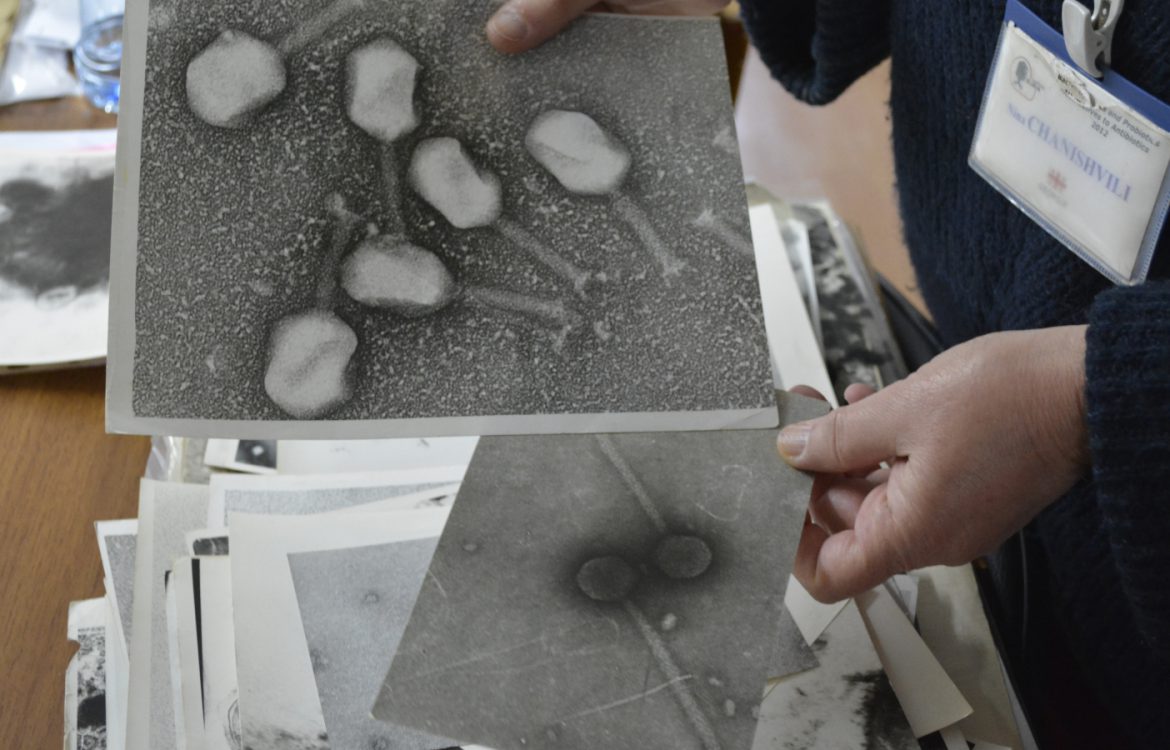
Georgian scientists collaborate with their European colleagues to find new therapy for asthma
Georgian scientists are working on innovative methods of asthma therapy together with European colleagues as part of a four-year study:“Constructing ‘Eubiosis Reinstatement Therapy’ for Asthma” (CURE).
The project has received €3 million in funding from the EU through the Horizon 2020 programme. Should the study be completed successfully, asthma could be treated with phages (naturally occurring viruses that kill bacteria) instead of antibiotics.
According to data from the World Health Organization, about 250 million people have asthma and it is the most common chronic disease among children. While curing the condition completely is not possible, the disease can be effectively managed. A daily dose of medication is typically used by patients to prevent symptoms and asthma attacks and to improve lung function.
Scientists at the Tbilisi George Eliava Institute of Bacteriophages, Microbiology and Virology think that asthma can be treated with phage therapy, a method that is different from traditional medicine. The development of bacteriophage in the last century is closely linked to the institute’s namesake, Georgian scientist George Eliava. He worked with Canadian scientist Felix d’Herelle at the Pasteur Institute in France, and founded the Tbilisi Institute in 1934. After the discovery of phages, they were initially used to treat dysentery, typhoid and cholera; however, the treatment was not always successful. Researchers in the field believe that methodological errors due to the insufficient development of microbiology at that time damaged the reputation of phage therapy. The field was not developed in the West, especially after the discovery of antibiotics in the 1940s.
According to studies undertaken by the Tbilisi Institute, one of the characteristic features of asthmatic dysbiosis is a dramatic reduction in bacteriophage numbers. Reinstatement of the eubiosis of asthmatic respiratory systems by means of phage therapy should become a controlling tool to manage the clinical manifestation and immune dysregulation of the disease.
How realistic this is and whether it is actually possible to treat asthma by using bacteriophages will become clear when the CURE study concludes in about three years’ time.
A consortium of 10 partners is implementing the CURE project, including Georgian partner organisations the Tbilisi Institute, and Eliava BioPreparations. European partners include the Biomedical Research Foundation Academy of Athens (BRFAA), the Swiss Institute of Allergy and Asthma (SIAF), the National and Kapodistrian University of Athens, the University of Manchester, Umeå University, Exelixis, the European Federation for Allergy and Airways Diseases Patients’ Associations (EFA), and the University of Lodz.
“Patients with asthma lack certain bacteriophages,” Nina Chanishvili, co-manager of the project on the Georgian side and a representative of the Tbilisi Institute, says. “Our objective is to isolate the bacteriophages from the upper respiratory airways of healthy individuals, study them, propagate them, create medications and return them to the ecosystem. We use epithelium from the upper airways, which we grow outside the human body (the technique for this exists and the method is more humane than animal testing). Afterwards, the culture is infected with the bacteria living in the human upper respiratory airways and we then add bacteriophages and measure the immunological parameters. This allows us to calculate which bacteriophages to add, when to add them and in what amount.”
“Imagine a forest where plants were burned by a fire,” she continues. “To restore the forest, it is necessary to introduce new plants. We are doing almost the same thing. Bacteriophages that are insufficient for a patient with asthma should be added to their microbiota (i.e. a composition of microorganisms in the upper respiratory airways) to restore the balance.”
She adds that such bacteriophages have already been isolated and are currently being sorted before being sent to immunologists for cellular tests. After the impact of specific phage mixes on the ecology of asthmatic respiratory airways has been identified, phage preparations will be developed and then selected for clinical testing.
“This will be an immune modulator. Generally, patients with asthma are treated with antibiotics and steroids. If we include bacteriophages in the therapeutic repertoire, we may not need the antibiotics and steroids at all, as the patients will be cured or will have longer remission periods than normal.”
What are the advantages of phages compared to antibiotics? As Nina explains, phages do not have the side effects characteristic of antibiotics and they are completely harmless. Moreover, the human body develops a resistance to antibiotics over time, which is not the case for phages.
Phage therapy has not yet been implemented in any EU countries, and the viability of treating asthma using this method has not been confirmed. Nina recognises that the project is risky. “In the end, we may get negative results – although from the first year of research it is clear that no negative results are expected. The project takes an unusual approach and one that has never been implemented before in relation to asthma.”
If the CURE study is successful then the project is likely to be implemented in Georgia first as the country already allows the use of bacteriophages (bacteriophage therapy is not accepted in the EU at present). In Georgia, the therapy is currently used to treat infections caused by purulent organisms (e.g. staphylococci, streptococci, E. coli) and enteral infections.
About Horizon 2020
Horizon 2020 is the largest multinational EU programme in the field of research and innovation. Scientists, universities, research organisations, companies and NGOs worldwide can apply for funding and to be involved into the work programme’s activities.
The programme’s budget for 2018-2020 is €30 billion. Funding from Horizon 2020can be obtained by submitting project proposals to the contests published on the participant portals. The contests identify specific field(s) for financing and provide evaluation criteria for each field. 17 projects involving Georgian partners have been funded in the framework of Horizon 2020 so far.
